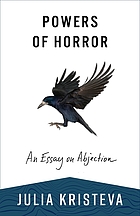
When practice is not laughter, there is nothing new where there is nothing new, practice cannot be provoking: From Kristeva’s psychoanalytic perspective, abjection is done to the part of ourselves that we exclude: That said, there seems to be a consistent project taking place. The concept of abjection is best described as the process by which one separates one’s sense of self from that which immediately threatens one’s sense of life. Nurses must learn to separate themselves and their emotional states from the circumstances of death, dying and suffering they are surrounded by. But the symbolic intervention of the Father between the mother and child alone is not enough to ensure the separation. The subjective process that is the essence of art gains its significance only and through being a remedy for this blockage. Rudolf Schwarzkogler is known for his photos dealing with the abject.īut even though it is deposited in the chorathe abject defies boundaries, is resistant to unity, and disturbs the identity, order, and system that is necessary to create the subject.

There is a great deal going on in this essay, so I will attempt to describe the general project and some of its most compelling points.īy bringing focus onto concepts such as abjection, psychotherapists may allow for the exploration of links between lived experience and cultural formations in the development of particular psychopathologies. The Irigiray line about masculine desire for empirics, or a phallic object of desire, desire in terms of its object. Very strict rituals and power structures are used in hospitals, which suggests that the dynamics of abjection have a role to play in understanding not abjechion how anxiety becomes the work of the health team and the organization, but also how it is enacted at the level of hospital policy. Subjectivity can become an open system, and art can become an individuating experience of limits. “Approaching Abjection” by Dylan Canter on Prezi The chora will, of course, return, but it is held in tenuous check by the sign or the image the subject has formed narcissistically of itself. Abjection is part of the earliest and forgotten struggle to separate from the mother who is reluctant to recognize the realm of the symbolic or the law of the Phallus. Abjection, Melancholia and Love: A tireless builder, the deject is in short a stray.Īn organizational aesthetics on the dark side”p. Organizational theory literature on abjection has attempted to illuminate various ways in which institutions come to silence, exclude or disavow feelings, practices, groups or discourses within the workplace. Is Kristeva explaining, in theoretical language, the very real ways in which women are abjected in society: From a deconstruction of sexual discourses and gender history Ian McCormick has outlined the recurring links between pleasurable transgressive desire, deviant categories of behaviour and responses to body fluids in 18th and 19th-century discussions of prostitution, sodomy, and masturbation self-pollution, impurity, uncleanness. Or the Kristeva discussion onwhich I do not understand, “. It must be emphasized that this essay is presented in a ‘mobile’ fashion, it passes through a number of conceptual view points briefly though incisively. In the late s, the abject became a theme of radical Chinese performance artists Zhu Yu and Yang Zhichao. The abject is a concept that is often used to describe bodies and things that one finds repulsive or disgusting, and in order to preserve one’s identity they are cast out. Later Kristeva suggests that the object puts one in search of meaning and the abject collapses meaning. Roy Sellars – – Angelaki 2 1: An analysis of body dysmorphic disorder”p. Lechte stressed the liminal condition of the abject: Abjection, Melancholia, and Love: Art, for Kristeva, avant-garde practice can transform society. Kristeva’s concept of abjection is utilized commonly to explain popular cultural narratives of horror, and discriminatory behavior manifesting in misogynymisandryhomophobiaand genocide.

Kristeva describes this figure as a kind of transient. There is a great deal going on in this essay, so I will attempt to describe the general project.

Summary of “Approaching Abjection” by Kristeva. Jump up to: Julia Kristeva, ‘Approaching Abjection’. Among the most popular interpretations of abjection is Julia Kristeva’s. The term abjection literally means “the state of being cast off.” The term has been explored in post-structuralism as that which inherently disturbs conventional identity and cultural concepts. , In: Powers of For Kristeva abjection accounts for much of the complexity of the human condition.


 0 kommentar(er)
0 kommentar(er)
